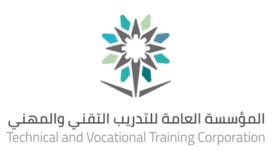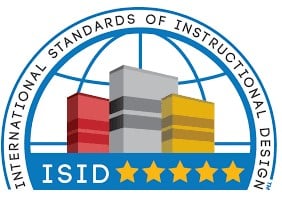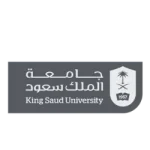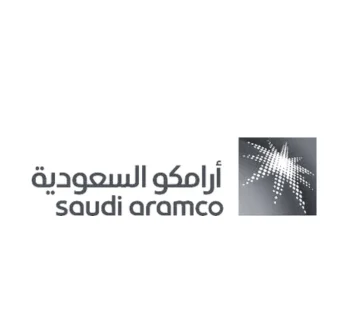Training bag: Quality Indicators for the Future School
Introduction to the program
Educational and educational organizations seek to continuously develop and improve their management systems and units, The school is the most important administrative unit in the education system and with the call to apply the comprehensive quality standards in the field of education and the application of modern learning strategies according to the spirit of the era start talking more about the school of the future and its qualitative indicators.
The training and qualification of school principals, teachers’ supervisors and education leaders on the concepts of the future school and its qualitative indicators is of high importance because it helps them to comply with these qualitative indicators that enable them to apply quality in their schools.
In this distinguished training portfolio prepared and continuously supervised by a group of training experts and consultants at The Success Skills Foundation for Human Development specialists in the field of educational management, the focus is on meeting the actual training needs of school principals, which take into account these qualitative indicators and the constant need to develop its capabilities and provide it with effective tools and applications in this field and qualify them to play their role towards applying the requirements of modern management efficiently and effectively contributing to the success of the application of modern strategies in the field of educational management in the field of educational management. their schools, Educational management tools have been prepared to provide the school staff and supervisors with them and the focus has been on the method of training workshops to give them high skill and the following is good for us to show you the general description of the vocabulary of this training bag.
By the end of this training program, we expect that the participants have achieved the following results (God willing): The trainee should be able to plan for the management of change in his school to achieve the qualitative indicators of the future school by giving him knowledge and skills and developing their skills in the application of the comprehensive quality system in their schools. Detailed objectives of this program include: 1- Identify the qualitative indicators of the future school by focusing on its basic skills. 2- The participant should recognize the criteria for the qualitative performance of the future school and determine the performance levels of each standard and then meet the requirements of the future school. 2- Identify the concept of comprehensive quality and procedural steps to apply it in the educational and educational work environment. 3- Raising the efficiency and effectiveness of school principals in the field of strategic planning for the implementation of the comprehensive quality system in their schools. 4- Give participants change management skills and effective leadership of their schools to apply the overall quality system in their schools. 5- Introducing participants to modern educational strategies as a requirement of the Future School.
In this training program, the participant will learn, God willing: 1- The concept of the school of the future (what is meant by the school of the future – what is meant by qualitative indicators – can these schools of the future be achieved in a reality in our educational and educational environment). 2- Qualitative indicators for the future school (student standards – teacher standards – teacher standards – school principal standards – school agent standards – student guide standards – standards supervisor of techniques – standards of the educational and educational environment) and then focus on the following: Standards relating to mission, objectives and leadership School quality performance standards: Education for learning skills Information integration Communication skills • Thinking skills Diagnostic and social responsibilities Five performance levels per standard • Outstanding level: Its characteristics and indicators • Good level: Its characteristics and indicators • Normal level: Its characteristics and indicators Mid-level: Its characteristics and indicators • Low level: Its characteristics and indicators – What can we do to meet the requirements of the Future School? 3- Comprehensive quality (concept of comprehensive quality – comprehensive quality system – elements of overall quality – concept of overall quality in the educational and educational environment – ISO standards in the field of education – system documentation – audit – mechanisms for applying the comprehensive quality system in the school). 4- Analysis of work problems (study of the difficulties and challenges that the school may face from the application of the quality system – elements of analysis of work problems – the art of managing change – the cycle of change). 5- Strategic planning for the implementation of the comprehensive quality system at the school (defining the concept of strategic planning – defining the concept of strategic plan – identifying the sides of the strategic plan – identifying the components of the “seven support plan with realistic examples” – identifying the components of the “procedural plan” with realistic practical examples on it – linking quality assurance standards and performance indicators to the strategic plan of the school – linking development projects to the strategic plan of the school).
To order:
info@hakapetk.com 00966 – whatsapp+Viber 0567518848 available
™IMAS
ضمن مفاهيم تصميم الأنظمة المنهجية في التدريب، تأتي مصفوفة IMAS كأداة من أدوات صناعة التدريب المعاصرة، والتي تتعامل مع آلية تجميع عناصر الحقيبة التدريبية في شكل متكامل ومتماسك لضمان توافق هذه العناصر مع تحقيق أهداف التدريب ورفع كفاءة الأداء مشارك ومدرب ومنظم. إنه يمكّن المطور من تطوير سيناريو تدريب احترافي مدروس جيدًا وإدارة وقت الجلسة التدريبية. يمكن للجلسة معالجة أي موضوع.

المؤسسة العامة للتدريب التقني والمهني
صممت منهجية خاصة بالجودة الداخلية في الوحدات التدريبية التابعة لها، حيث تشمل على خمسة معايير رئيسية، تتضمن الإدارة والقيادة، والمدربين، والخدمات المقدمة للمتدربين، والمناهج، وبيئة التدريب، وذلك بهدف تطوير جودة التدريب المقدم في المنشآت التدريبية لمواكبة حاجة سوق العمل المحلي.

™ISID
يعد أول برنامج من نوعه في تقييم وتصنيف الحقائب التدريبية ويهدف إلى أن يكون مرجعاً مهماً للشركات والمؤسسات لضمان جودة التدريب المقدم لكوادرها من أجل تطوير الأداء وتطويره وتحسينه. إن جعل هذه المعايير دولية ليس فقط لأنها منتشرة في أكثر من قارة واحدة ومئات البلدان والمنظمات، ولكن أيضًا لأنها متوافقة مع العديد. تقنيات أسترالية ويابانية وكندية وأمريكية.
Introduction to the program
Educational and educational organizations seek to continuously develop and improve their management systems and units, The school is the most important administrative unit in the education system and with the call to apply the comprehensive quality standards in the field of education and the application of modern learning strategies according to the spirit of the era start talking more about the school of the future and its qualitative indicators.
The training and qualification of school principals, teachers’ supervisors and education leaders on the concepts of the future school and its qualitative indicators is of high importance because it helps them to comply with these qualitative indicators that enable them to apply quality in their schools.
In this distinguished training portfolio prepared and continuously supervised by a group of training experts and consultants at The Success Skills Foundation for Human Development specialists in the field of educational management, the focus is on meeting the actual training needs of school principals, which take into account these qualitative indicators and the constant need to develop its capabilities and provide it with effective tools and applications in this field and qualify them to play their role towards applying the requirements of modern management efficiently and effectively contributing to the success of the application of modern strategies in the field of educational management in the field of educational management. their schools, Educational management tools have been prepared to provide the school staff and supervisors with them and the focus has been on the method of training workshops to give them high skill and the following is good for us to show you the general description of the vocabulary of this training bag.
By the end of this training program, we expect that the participants have achieved the following results (God willing): The trainee should be able to plan for the management of change in his school to achieve the qualitative indicators of the future school by giving him knowledge and skills and developing their skills in the application of the comprehensive quality system in their schools. Detailed objectives of this program include: 1- Identify the qualitative indicators of the future school by focusing on its basic skills. 2- The participant should recognize the criteria for the qualitative performance of the future school and determine the performance levels of each standard and then meet the requirements of the future school. 2- Identify the concept of comprehensive quality and procedural steps to apply it in the educational and educational work environment. 3- Raising the efficiency and effectiveness of school principals in the field of strategic planning for the implementation of the comprehensive quality system in their schools. 4- Give participants change management skills and effective leadership of their schools to apply the overall quality system in their schools. 5- Introducing participants to modern educational strategies as a requirement of the Future School.
In this training program, the participant will learn, God willing: 1- The concept of the school of the future (what is meant by the school of the future – what is meant by qualitative indicators – can these schools of the future be achieved in a reality in our educational and educational environment). 2- Qualitative indicators for the future school (student standards – teacher standards – teacher standards – school principal standards – school agent standards – student guide standards – standards supervisor of techniques – standards of the educational and educational environment) and then focus on the following: Standards relating to mission, objectives and leadership School quality performance standards: Education for learning skills Information integration Communication skills • Thinking skills Diagnostic and social responsibilities Five performance levels per standard • Outstanding level: Its characteristics and indicators • Good level: Its characteristics and indicators • Normal level: Its characteristics and indicators Mid-level: Its characteristics and indicators • Low level: Its characteristics and indicators – What can we do to meet the requirements of the Future School? 3- Comprehensive quality (concept of comprehensive quality – comprehensive quality system – elements of overall quality – concept of overall quality in the educational and educational environment – ISO standards in the field of education – system documentation – audit – mechanisms for applying the comprehensive quality system in the school). 4- Analysis of work problems (study of the difficulties and challenges that the school may face from the application of the quality system – elements of analysis of work problems – the art of managing change – the cycle of change). 5- Strategic planning for the implementation of the comprehensive quality system at the school (defining the concept of strategic planning – defining the concept of strategic plan – identifying the sides of the strategic plan – identifying the components of the “seven support plan with realistic examples” – identifying the components of the “procedural plan” with realistic practical examples on it – linking quality assurance standards and performance indicators to the strategic plan of the school – linking development projects to the strategic plan of the school).
To order:
info@hakapetk.com 00966 – whatsapp+Viber 0567518848 available
™IMAS
ضمن مفاهيم تصميم الأنظمة المنهجية في التدريب، تأتي مصفوفة IMAS كأداة من أدوات صناعة التدريب المعاصرة، والتي تتعامل مع آلية تجميع عناصر الحقيبة التدريبية في شكل متكامل ومتماسك لضمان توافق هذه العناصر مع تحقيق أهداف التدريب ورفع كفاءة الأداء مشارك ومدرب ومنظم. إنه يمكّن المطور من تطوير سيناريو تدريب احترافي مدروس جيدًا وإدارة وقت الجلسة التدريبية. يمكن للجلسة معالجة أي موضوع.

المؤسسة العامة للتدريب التقني والمهني
صممت منهجية خاصة بالجودة الداخلية في الوحدات التدريبية التابعة لها، حيث تشمل على خمسة معايير رئيسية، تتضمن الإدارة والقيادة، والمدربين، والخدمات المقدمة للمتدربين، والمناهج، وبيئة التدريب، وذلك بهدف تطوير جودة التدريب المقدم في المنشآت التدريبية لمواكبة حاجة سوق العمل المحلي.

™ISID
يعد أول برنامج من نوعه في تقييم وتصنيف الحقائب التدريبية ويهدف إلى أن يكون مرجعاً مهماً للشركات والمؤسسات لضمان جودة التدريب المقدم لكوادرها من أجل تطوير الأداء وتطويره وتحسينه. إن جعل هذه المعايير دولية ليس فقط لأنها منتشرة في أكثر من قارة واحدة ومئات البلدان والمنظمات، ولكن أيضًا لأنها متوافقة مع العديد. تقنيات أسترالية ويابانية وكندية وأمريكية.
There are no reviews yet.
Only logged in customers who have purchased this product may leave a review.
Introduction to the program
Educational and educational organizations seek to continuously develop and improve their management systems and units, The school is the most important administrative unit in the education system and with the call to apply the comprehensive quality standards in the field of education and the application of modern learning strategies according to the spirit of the era start talking more about the school of the future and its qualitative indicators.
The training and qualification of school principals, teachers’ supervisors and education leaders on the concepts of the future school and its qualitative indicators is of high importance because it helps them to comply with these qualitative indicators that enable them to apply quality in their schools.
In this distinguished training portfolio prepared and continuously supervised by a group of training experts and consultants at The Success Skills Foundation for Human Development specialists in the field of educational management, the focus is on meeting the actual training needs of school principals, which take into account these qualitative indicators and the constant need to develop its capabilities and provide it with effective tools and applications in this field and qualify them to play their role towards applying the requirements of modern management efficiently and effectively contributing to the success of the application of modern strategies in the field of educational management in the field of educational management. their schools, Educational management tools have been prepared to provide the school staff and supervisors with them and the focus has been on the method of training workshops to give them high skill and the following is good for us to show you the general description of the vocabulary of this training bag.
By the end of this training program, we expect that the participants have achieved the following results (God willing): The trainee should be able to plan for the management of change in his school to achieve the qualitative indicators of the future school by giving him knowledge and skills and developing their skills in the application of the comprehensive quality system in their schools. Detailed objectives of this program include: 1- Identify the qualitative indicators of the future school by focusing on its basic skills. 2- The participant should recognize the criteria for the qualitative performance of the future school and determine the performance levels of each standard and then meet the requirements of the future school. 2- Identify the concept of comprehensive quality and procedural steps to apply it in the educational and educational work environment. 3- Raising the efficiency and effectiveness of school principals in the field of strategic planning for the implementation of the comprehensive quality system in their schools. 4- Give participants change management skills and effective leadership of their schools to apply the overall quality system in their schools. 5- Introducing participants to modern educational strategies as a requirement of the Future School.
In this training program, the participant will learn, God willing: 1- The concept of the school of the future (what is meant by the school of the future – what is meant by qualitative indicators – can these schools of the future be achieved in a reality in our educational and educational environment). 2- Qualitative indicators for the future school (student standards – teacher standards – teacher standards – school principal standards – school agent standards – student guide standards – standards supervisor of techniques – standards of the educational and educational environment) and then focus on the following: Standards relating to mission, objectives and leadership School quality performance standards: Education for learning skills Information integration Communication skills • Thinking skills Diagnostic and social responsibilities Five performance levels per standard • Outstanding level: Its characteristics and indicators • Good level: Its characteristics and indicators • Normal level: Its characteristics and indicators Mid-level: Its characteristics and indicators • Low level: Its characteristics and indicators – What can we do to meet the requirements of the Future School? 3- Comprehensive quality (concept of comprehensive quality – comprehensive quality system – elements of overall quality – concept of overall quality in the educational and educational environment – ISO standards in the field of education – system documentation – audit – mechanisms for applying the comprehensive quality system in the school). 4- Analysis of work problems (study of the difficulties and challenges that the school may face from the application of the quality system – elements of analysis of work problems – the art of managing change – the cycle of change). 5- Strategic planning for the implementation of the comprehensive quality system at the school (defining the concept of strategic planning – defining the concept of strategic plan – identifying the sides of the strategic plan – identifying the components of the “seven support plan with realistic examples” – identifying the components of the “procedural plan” with realistic practical examples on it – linking quality assurance standards and performance indicators to the strategic plan of the school – linking development projects to the strategic plan of the school).
To order:
info@hakapetk.com 00966 – whatsapp+Viber 0567518848 available
ضمن مفاهيم تصميم الأنظمة المنهجية في التدريب ،تأتي مصفوفة IMAS كأداة من أدوات صناعة التدريب المعاصرة ،والتي تتعامل مع آلية تجميع عناصر الحقيبة التدريبية في شكل متكامل ومتماسك لضمان توافق هذه العناصر مع تحقيق أهداف التدريب ورفع كفاءة الأداء مشارك ومدرب ومنظم. إنه يمكّن المطور من تطوير سيناريو تدريب احترافي مدروس جيدًا وإدارة وقت الجلسة التدريبية. يمكن للجلسة معالجة أي موضوع.

صممت منهجية خاصة بالجودة الداخلية في الوحدات التدريبية التابعة لها، حيث تشمل على خمسة معايير رئيسية، تتضمن الإدارة والقيادة، والمدربين، والخدمات المقدمة للمتدربين، والمناهج، وبيئة التدريب، وذلك بهدف تطوير جودة التدريب المقدم في المنشآت التدريبية لمواكبة حاجة سوق العمل المحلي.

يعد أول برنامع من نوعه في تقييم وتصنيف الحقائب التدريبية،ويهدف إلى أن يكون مرجعاً مهماً للشركات والمؤسسات لضمان جودة التدريب المقدم لكوادرها من أجل تطوير الأداء وتطويره وتحسينه. إن جعل هذه المعايير دولية ليس فقط لأنها منتشرة في أكثر من قارة واحدة ومئات البلدان والمنظمات ،ولكن أيضًا لأنها متوافقة مع العديد. تقنيات أسترالية ويابانية وكندية وأمريكية.
There are no reviews yet.
Only logged in customers who have purchased this product may leave a review.







Training bag: Quality Indicators for the Future School
Introduction to the program
Educational and educational organizations seek to continuously develop and improve their management systems and units, The school is the most important administrative unit in the education system and with the call to apply the comprehensive quality standards in the field of education and the application of modern learning strategies according to the spirit of the era start talking more about the school of the future and its qualitative indicators.
The training and qualification of school principals, teachers’ supervisors and education leaders on the concepts of the future school and its qualitative indicators is of high importance because it helps them to comply with these qualitative indicators that enable them to apply quality in their schools.
In this distinguished training portfolio prepared and continuously supervised by a group of training experts and consultants at The Success Skills Foundation for Human Development specialists in the field of educational management, the focus is on meeting the actual training needs of school principals, which take into account these qualitative indicators and the constant need to develop its capabilities and provide it with effective tools and applications in this field and qualify them to play their role towards applying the requirements of modern management efficiently and effectively contributing to the success of the application of modern strategies in the field of educational management in the field of educational management. their schools, Educational management tools have been prepared to provide the school staff and supervisors with them and the focus has been on the method of training workshops to give them high skill and the following is good for us to show you the general description of the vocabulary of this training bag.
By the end of this training program, we expect that the participants have achieved the following results (God willing): The trainee should be able to plan for the management of change in his school to achieve the qualitative indicators of the future school by giving him knowledge and skills and developing their skills in the application of the comprehensive quality system in their schools. Detailed objectives of this program include: 1- Identify the qualitative indicators of the future school by focusing on its basic skills. 2- The participant should recognize the criteria for the qualitative performance of the future school and determine the performance levels of each standard and then meet the requirements of the future school. 2- Identify the concept of comprehensive quality and procedural steps to apply it in the educational and educational work environment. 3- Raising the efficiency and effectiveness of school principals in the field of strategic planning for the implementation of the comprehensive quality system in their schools. 4- Give participants change management skills and effective leadership of their schools to apply the overall quality system in their schools. 5- Introducing participants to modern educational strategies as a requirement of the Future School.
In this training program, the participant will learn, God willing: 1- The concept of the school of the future (what is meant by the school of the future – what is meant by qualitative indicators – can these schools of the future be achieved in a reality in our educational and educational environment). 2- Qualitative indicators for the future school (student standards – teacher standards – teacher standards – school principal standards – school agent standards – student guide standards – standards supervisor of techniques – standards of the educational and educational environment) and then focus on the following: Standards relating to mission, objectives and leadership School quality performance standards: Education for learning skills Information integration Communication skills • Thinking skills Diagnostic and social responsibilities Five performance levels per standard • Outstanding level: Its characteristics and indicators • Good level: Its characteristics and indicators • Normal level: Its characteristics and indicators Mid-level: Its characteristics and indicators • Low level: Its characteristics and indicators – What can we do to meet the requirements of the Future School? 3- Comprehensive quality (concept of comprehensive quality – comprehensive quality system – elements of overall quality – concept of overall quality in the educational and educational environment – ISO standards in the field of education – system documentation – audit – mechanisms for applying the comprehensive quality system in the school). 4- Analysis of work problems (study of the difficulties and challenges that the school may face from the application of the quality system – elements of analysis of work problems – the art of managing change – the cycle of change). 5- Strategic planning for the implementation of the comprehensive quality system at the school (defining the concept of strategic planning – defining the concept of strategic plan – identifying the sides of the strategic plan – identifying the components of the “seven support plan with realistic examples” – identifying the components of the “procedural plan” with realistic practical examples on it – linking quality assurance standards and performance indicators to the strategic plan of the school – linking development projects to the strategic plan of the school).
To order:
info@hakapetk.com 00966 – whatsapp+Viber 0567518848 available
™IMAS
ضمن مفاهيم تصميم الأنظمة المنهجية في التدريب، تأتي مصفوفة IMAS كأداة من أدوات صناعة التدريب المعاصرة، والتي تتعامل مع آلية تجميع عناصر الحقيبة التدريبية في شكل متكامل ومتماسك لضمان توافق هذه العناصر مع تحقيق أهداف التدريب ورفع كفاءة الأداء مشارك ومدرب ومنظم. إنه يمكّن المطور من تطوير سيناريو تدريب احترافي مدروس جيدًا وإدارة وقت الجلسة التدريبية. يمكن للجلسة معالجة أي موضوع.

المؤسسة العامة للتدريب التقني والمهني
صممت منهجية خاصة بالجودة الداخلية في الوحدات التدريبية التابعة لها، حيث تشمل على خمسة معايير رئيسية، تتضمن الإدارة والقيادة، والمدربين، والخدمات المقدمة للمتدربين، والمناهج، وبيئة التدريب، وذلك بهدف تطوير جودة التدريب المقدم في المنشآت التدريبية لمواكبة حاجة سوق العمل المحلي.

™ISID
يعد أول برنامج من نوعه في تقييم وتصنيف الحقائب التدريبية ويهدف إلى أن يكون مرجعاً مهماً للشركات والمؤسسات لضمان جودة التدريب المقدم لكوادرها من أجل تطوير الأداء وتطويره وتحسينه. إن جعل هذه المعايير دولية ليس فقط لأنها منتشرة في أكثر من قارة واحدة ومئات البلدان والمنظمات، ولكن أيضًا لأنها متوافقة مع العديد. تقنيات أسترالية ويابانية وكندية وأمريكية.
There are no reviews yet.
Only logged in customers who have purchased this product may leave a review.
Introduction to the program
Educational and educational organizations seek to continuously develop and improve their management systems and units, The school is the most important administrative unit in the education system and with the call to apply the comprehensive quality standards in the field of education and the application of modern learning strategies according to the spirit of the era start talking more about the school of the future and its qualitative indicators.
The training and qualification of school principals, teachers’ supervisors and education leaders on the concepts of the future school and its qualitative indicators is of high importance because it helps them to comply with these qualitative indicators that enable them to apply quality in their schools.
In this distinguished training portfolio prepared and continuously supervised by a group of training experts and consultants at The Success Skills Foundation for Human Development specialists in the field of educational management, the focus is on meeting the actual training needs of school principals, which take into account these qualitative indicators and the constant need to develop its capabilities and provide it with effective tools and applications in this field and qualify them to play their role towards applying the requirements of modern management efficiently and effectively contributing to the success of the application of modern strategies in the field of educational management in the field of educational management. their schools, Educational management tools have been prepared to provide the school staff and supervisors with them and the focus has been on the method of training workshops to give them high skill and the following is good for us to show you the general description of the vocabulary of this training bag.
By the end of this training program, we expect that the participants have achieved the following results (God willing): The trainee should be able to plan for the management of change in his school to achieve the qualitative indicators of the future school by giving him knowledge and skills and developing their skills in the application of the comprehensive quality system in their schools. Detailed objectives of this program include: 1- Identify the qualitative indicators of the future school by focusing on its basic skills. 2- The participant should recognize the criteria for the qualitative performance of the future school and determine the performance levels of each standard and then meet the requirements of the future school. 2- Identify the concept of comprehensive quality and procedural steps to apply it in the educational and educational work environment. 3- Raising the efficiency and effectiveness of school principals in the field of strategic planning for the implementation of the comprehensive quality system in their schools. 4- Give participants change management skills and effective leadership of their schools to apply the overall quality system in their schools. 5- Introducing participants to modern educational strategies as a requirement of the Future School.
In this training program, the participant will learn, God willing: 1- The concept of the school of the future (what is meant by the school of the future – what is meant by qualitative indicators – can these schools of the future be achieved in a reality in our educational and educational environment). 2- Qualitative indicators for the future school (student standards – teacher standards – teacher standards – school principal standards – school agent standards – student guide standards – standards supervisor of techniques – standards of the educational and educational environment) and then focus on the following: Standards relating to mission, objectives and leadership School quality performance standards: Education for learning skills Information integration Communication skills • Thinking skills Diagnostic and social responsibilities Five performance levels per standard • Outstanding level: Its characteristics and indicators • Good level: Its characteristics and indicators • Normal level: Its characteristics and indicators Mid-level: Its characteristics and indicators • Low level: Its characteristics and indicators – What can we do to meet the requirements of the Future School? 3- Comprehensive quality (concept of comprehensive quality – comprehensive quality system – elements of overall quality – concept of overall quality in the educational and educational environment – ISO standards in the field of education – system documentation – audit – mechanisms for applying the comprehensive quality system in the school). 4- Analysis of work problems (study of the difficulties and challenges that the school may face from the application of the quality system – elements of analysis of work problems – the art of managing change – the cycle of change). 5- Strategic planning for the implementation of the comprehensive quality system at the school (defining the concept of strategic planning – defining the concept of strategic plan – identifying the sides of the strategic plan – identifying the components of the “seven support plan with realistic examples” – identifying the components of the “procedural plan” with realistic practical examples on it – linking quality assurance standards and performance indicators to the strategic plan of the school – linking development projects to the strategic plan of the school).
To order:
info@hakapetk.com 00966 – whatsapp+Viber 0567518848 available
™IMAS
ضمن مفاهيم تصميم الأنظمة المنهجية في التدريب، تأتي مصفوفة IMAS كأداة من أدوات صناعة التدريب المعاصرة، والتي تتعامل مع آلية تجميع عناصر الحقيبة التدريبية في شكل متكامل ومتماسك لضمان توافق هذه العناصر مع تحقيق أهداف التدريب ورفع كفاءة الأداء مشارك ومدرب ومنظم. إنه يمكّن المطور من تطوير سيناريو تدريب احترافي مدروس جيدًا وإدارة وقت الجلسة التدريبية. يمكن للجلسة معالجة أي موضوع.

المؤسسة العامة للتدريب التقني والمهني
صممت منهجية خاصة بالجودة الداخلية في الوحدات التدريبية التابعة لها، حيث تشمل على خمسة معايير رئيسية، تتضمن الإدارة والقيادة، والمدربين، والخدمات المقدمة للمتدربين، والمناهج، وبيئة التدريب، وذلك بهدف تطوير جودة التدريب المقدم في المنشآت التدريبية لمواكبة حاجة سوق العمل المحلي.

™ISID
يعد أول برنامج من نوعه في تقييم وتصنيف الحقائب التدريبية ويهدف إلى أن يكون مرجعاً مهماً للشركات والمؤسسات لضمان جودة التدريب المقدم لكوادرها من أجل تطوير الأداء وتطويره وتحسينه. إن جعل هذه المعايير دولية ليس فقط لأنها منتشرة في أكثر من قارة واحدة ومئات البلدان والمنظمات، ولكن أيضًا لأنها متوافقة مع العديد. تقنيات أسترالية ويابانية وكندية وأمريكية.
There are no reviews yet.
Only logged in customers who have purchased this product may leave a review.
Introduction to the program
Educational and educational organizations seek to continuously develop and improve their management systems and units, The school is the most important administrative unit in the education system and with the call to apply the comprehensive quality standards in the field of education and the application of modern learning strategies according to the spirit of the era start talking more about the school of the future and its qualitative indicators.
The training and qualification of school principals, teachers’ supervisors and education leaders on the concepts of the future school and its qualitative indicators is of high importance because it helps them to comply with these qualitative indicators that enable them to apply quality in their schools.
In this distinguished training portfolio prepared and continuously supervised by a group of training experts and consultants at The Success Skills Foundation for Human Development specialists in the field of educational management, the focus is on meeting the actual training needs of school principals, which take into account these qualitative indicators and the constant need to develop its capabilities and provide it with effective tools and applications in this field and qualify them to play their role towards applying the requirements of modern management efficiently and effectively contributing to the success of the application of modern strategies in the field of educational management in the field of educational management. their schools, Educational management tools have been prepared to provide the school staff and supervisors with them and the focus has been on the method of training workshops to give them high skill and the following is good for us to show you the general description of the vocabulary of this training bag.
By the end of this training program, we expect that the participants have achieved the following results (God willing): The trainee should be able to plan for the management of change in his school to achieve the qualitative indicators of the future school by giving him knowledge and skills and developing their skills in the application of the comprehensive quality system in their schools. Detailed objectives of this program include: 1- Identify the qualitative indicators of the future school by focusing on its basic skills. 2- The participant should recognize the criteria for the qualitative performance of the future school and determine the performance levels of each standard and then meet the requirements of the future school. 2- Identify the concept of comprehensive quality and procedural steps to apply it in the educational and educational work environment. 3- Raising the efficiency and effectiveness of school principals in the field of strategic planning for the implementation of the comprehensive quality system in their schools. 4- Give participants change management skills and effective leadership of their schools to apply the overall quality system in their schools. 5- Introducing participants to modern educational strategies as a requirement of the Future School.
In this training program, the participant will learn, God willing: 1- The concept of the school of the future (what is meant by the school of the future – what is meant by qualitative indicators – can these schools of the future be achieved in a reality in our educational and educational environment). 2- Qualitative indicators for the future school (student standards – teacher standards – teacher standards – school principal standards – school agent standards – student guide standards – standards supervisor of techniques – standards of the educational and educational environment) and then focus on the following: Standards relating to mission, objectives and leadership School quality performance standards: Education for learning skills Information integration Communication skills • Thinking skills Diagnostic and social responsibilities Five performance levels per standard • Outstanding level: Its characteristics and indicators • Good level: Its characteristics and indicators • Normal level: Its characteristics and indicators Mid-level: Its characteristics and indicators • Low level: Its characteristics and indicators – What can we do to meet the requirements of the Future School? 3- Comprehensive quality (concept of comprehensive quality – comprehensive quality system – elements of overall quality – concept of overall quality in the educational and educational environment – ISO standards in the field of education – system documentation – audit – mechanisms for applying the comprehensive quality system in the school). 4- Analysis of work problems (study of the difficulties and challenges that the school may face from the application of the quality system – elements of analysis of work problems – the art of managing change – the cycle of change). 5- Strategic planning for the implementation of the comprehensive quality system at the school (defining the concept of strategic planning – defining the concept of strategic plan – identifying the sides of the strategic plan – identifying the components of the “seven support plan with realistic examples” – identifying the components of the “procedural plan” with realistic practical examples on it – linking quality assurance standards and performance indicators to the strategic plan of the school – linking development projects to the strategic plan of the school).
To order:
info@hakapetk.com 00966 – whatsapp+Viber 0567518848 available
ضمن مفاهيم تصميم الأنظمة المنهجية في التدريب ،تأتي مصفوفة IMAS كأداة من أدوات صناعة التدريب المعاصرة ،والتي تتعامل مع آلية تجميع عناصر الحقيبة التدريبية في شكل متكامل ومتماسك لضمان توافق هذه العناصر مع تحقيق أهداف التدريب ورفع كفاءة الأداء مشارك ومدرب ومنظم. إنه يمكّن المطور من تطوير سيناريو تدريب احترافي مدروس جيدًا وإدارة وقت الجلسة التدريبية. يمكن للجلسة معالجة أي موضوع.

صممت منهجية خاصة بالجودة الداخلية في الوحدات التدريبية التابعة لها، حيث تشمل على خمسة معايير رئيسية، تتضمن الإدارة والقيادة، والمدربين، والخدمات المقدمة للمتدربين، والمناهج، وبيئة التدريب، وذلك بهدف تطوير جودة التدريب المقدم في المنشآت التدريبية لمواكبة حاجة سوق العمل المحلي.

يعد أول برنامع من نوعه في تقييم وتصنيف الحقائب التدريبية،ويهدف إلى أن يكون مرجعاً مهماً للشركات والمؤسسات لضمان جودة التدريب المقدم لكوادرها من أجل تطوير الأداء وتطويره وتحسينه. إن جعل هذه المعايير دولية ليس فقط لأنها منتشرة في أكثر من قارة واحدة ومئات البلدان والمنظمات ،ولكن أيضًا لأنها متوافقة مع العديد. تقنيات أسترالية ويابانية وكندية وأمريكية.
There are no reviews yet.
Only logged in customers who have purchased this product may leave a review.






Training bag: How to implement architectural finishes
This training material is designed to equip beginners and experienced professionals with the essential business skills and knowledge they need to succeed. Covering fundamental concepts such as finance, marketing, operations, and management, this training material provides a comprehensive foundation for individuals looking to enhance their business acumen and drive growth in their organizations.
This training material covers the topic of macroeconomics with a focus on the 2023 budgets and the USA economy. It includes information on government macroeconomic policies, as well as workbooks and multiple-choice tests to reinforce learning and assess understanding. Perfect for anyone looking to enhance their knowledge in macroeconomics and stay updated on the latest economic trends.
This training material provides a comprehensive understanding of generational differences and cultural diversity in India, focusing on effective management and leadership strategies. It also explores the impact of cultural diversity on industrial organizational strategy. With 20 hours of content, it equips participants with the knowledge and skills to navigate diverse workplaces in India and develop successful strategies for organizational growth and success.
This training material focuses on crisis management in the context of a pandemic, specifically addressing the economic response. It covers strategies and techniques for effectively managing the financial impact of a crisis, including government policies, business continuity planning, and financial risk management.
The Oxford Diploma in Business Fundamentals training material includes comprehensive content on essential business concepts and practices. The package also provides multiple-choice tests to measure knowledge acquisition and workbooks for practical application of concepts. Perfect for individuals seeking a comprehensive understanding of business fundamentals and preparing for professional certifications.
This training material is designed to help individuals prepare for the Entry Certification in Business Analysis exam. It provides practice exams that simulate the real exam experience, allowing participants to assess their knowledge and understanding of key concepts in business analysis. The material covers a wide range of topics, including requirements elicitation, stakeholder analysis, and process modeling.
Training bag: Quality Indicators for the Future School
Reviews
There are no reviews yet.
Only logged in customers who have purchased this product may leave a review.